
Legacy Life: Training with Jill
Jill Wigmore-Welsh
Podcasts by Jill Wigmore-Welsh
- 23 minutes 42 secondsFeldenkrais Method for Stress Management - Jill Wigmore-Welsh
This Body Sensing & Movement Awareness Lesson is an introduction to a way you can use simple moves from the Feldenkrais Method to de-stress and recalibrate
These days, in the workplace, there's a lot of attention placed on becoming more resilient. Which is interesting because sometimes when you are under stress when you're life is stressful and it's an ongoing event what happens is that over time that ongoing stress can just cause all kinds of mental and physical body breakdowns.
So what would it be like for you to actually be able to start to detect much more easily and much more quickly when life is getting to you when life is making you feel stressed?
Try this short set of processes and discover how much you tension during the day.
As you develop your body awareness you can have another tool in your toolbox to keep yourself to stay healthy and well.
Contact me if you have health problems and want to have some help.
23 June 2023, 8:19 am - 17 minutes 11 secondsLive show Episode 2: Feldenkrais and Every Day Stress -Jill Wigmore-Welsh
This is the second show episode that went out today and I talk Feldenkrais & everyday stress and tensioning:
Here is the link to the lesson: Warning sound is a little muffled, recording issues!!
Feldenkrais BSMA and Stress Management Lesson
Here is the text:
Hello this is Jill Wigmore-Welsh here from Reading in Berkshire just introducing you to another installment of this wonderful Legacy Project centering on the Feldenkrais method and the applications in terms of your everyday practice.
So I'm really going to be talking today about the brain and central nervous system and the emerging science, neuroscience. So when you're listening into this recording today I don't know who you are I don't know what your background is I don't know what knowledge and experience you have of your body of your brain of science so it can be a challenge to know who I can pitch this talk too
However, let's imagine that I am just talking to my next door neighbor or the average person who comes to see me in my clinical practice my treatment room. The room I have in my home, that’s the place where people come to see me because they have problems.
Most all of the people who come to see me don't know anything about the structure of their body they don't know anything much about physiology biology bones joints muscles , ligaments . They don't know much about the science behind how their body works.
They come to see me when they have a problem and that problem may be a pain, it may be a problem with movement, it may be a problem sleeping, it may be a problem with overthinking, worrying, procrastinating. Whatever it is, it’s something that's happening in their life and they're not happy and they want a solution.
Most always during the course of time that I work with people I introduce some of the principles and theories that I've learned from the Feldenkrais method. It has it’s roots in neuroscience. He studied neuroscience, but not MRI scans because they didn’t exist back then. He learned from scientists.
As you probably know I've been studying the Feldenkrais method since 1992. I completed my Feldenkrais Method practitioner training back in 1999 and I've completed many advanced trainings since..
So today we're going to be talking about using the Feldenkrais work and it's application to your everyday stress. That's right the everyday stress that you have as you go about your day-to-day activities.
A little bit of stress is good for us if you don't have any stressful activities or anything at all a really our system doesn't work particularly well so a little bit of stress is okay episodes of quite a bit of stress is also something that most of us can handle but when you have stress and on going stress that lasts and lasts and lingers and that may be being caused by money relationships your health there are many many reasons that you could have underlying ongoing low grade stress that is just grinding and grinding and grinding away.
When we react and respond to things that we find are stressful we automatically go into that fight flight or freeze response and that is well recognized we used to just say fight or flight but now we know that there is freeze as well
When you experience ongoing stress you may not notice that your physiology your body is actually responding to that ongoing stress you may not notice it because it becomes so normal for your system to be responding that you just don't realize there's any other way to be
One of the most powerful effects of stress is on the way that we contract our muscles in response. We contract our muscles as a form of protection
If you're getting ready to fight imagine what you would do you'd be tensing your muscles you possibly be making a fist you'd be bending your arms you be tightening your shoulders you be focused on what it is that you're going to do
Imagine that you're driving down the motorway and as you drive down the motorway you've had a stressful day at work and you're driving through the traffic
As you drive through the traffic you've got more and more people pushing in front of you pulling in moving over. What you start to notice is that the hazard signs are showing that says the whole of that big motorway freeway I suppose if we were talking about America is going to shut. Lanes are going to close, “ah no!” even more stress begins to start to kick in.
You start to think “I'm going to be late I'm going to be delayed I need use the bathroom oh no!” and that stress that tension starts to magnify as it starts to magnify you begin to contract your muscles even more
If you've been contracting your muscles without realizing it for a long time there comes a point where you just don't notice.
You don't notice that you're gripping the steering wheel you don't notice that your elbows are bent and tight you don't notice that your shoulders are contracted you don't notice that you are holding your breath that you're tensing your legs that you're furrowing your brow that you’re clenching your jaw.
You don't notice because it's so habitual for you
But what you may notice is that you begin to start to get pain or you begin to start to feel as if you've got discomfort in your belly or your back.
It might even be that you begin to start to feel as if you want to shout or scream.
It may be that you do find yourself shouting at other drivers in cars or banging the steering wheel because you're getting so annoyed
Every day stress that builds up over a period of time is not good for your health.
The tension that you can't feel, that you’re not aware of, is going on all the time, and its stopping the blood from flowing through your tissues.
As you contract your muscles the blood vessels within the muscles become compressed and squashed making it more difficult for the blood to flow through
Our combination of moving so that the muscles alternately contract and relax as you swing and flow your arms helps to keep that blood flow moving smoothly through all of your tissues.
Without good oxygenated blood traveling through your system going to every part of your system, cells are going to start to be low on oxygen they're going to become unhealthy
One of the best ways that you can help yourself to become very much more aware of your muscle tensioning of your physiology of your biology of your body and the messages that you're feeling in your body is to actually practice some of the work that the Feldenkrais Method.
Today I'm going to record a short lesson to help you discover how you can start to break that pattern of tensioning your muscles and how you can change your biology.
Come along and do the lesson
I look forward to talking to you again next week when I'll be online and I look forward to bringing you more installments of ways in which you can think of using this work to help your health
For now from me to you, this is Jill here in Reading in Berkshire have a lovely day and look after yourself
23 June 2023, 7:05 am - 17 minutes 30 secondsLive show Number 1: How can Feldenkrais fit into a personal development program?
Number 1:
This is a recording of a live podcast put out on Thursday 15 June, which is the first of a series, where I introduce ways you can utilize this work as you learn to improve your life.
It lasts about 16 minutes, and hopefully the recording sounds OK.
Let me know.
If you want to have a conversation and discuss options on ways you need help then here is my booking link
Bye for now!
xxJ
15 June 2023, 9:27 am - 35 minutes 44 secondsFeldenkrais Part 2 Alexander Yanai 4 Points lesson: Link to Part 1 in the description
This is the second part of the Feldenkrais Method 4 Points classic Alexander Yania lesson.
Sorry but the quality of the recording isn't so good, the yeti microphone may not have been picked up by audacity, typical tech issues !
Yesterday I recorded part one for you and stopped at a midpoint, today I take up where we left off and complete the lesson.
If you want to do the whole lesson then here is the link to Part 1 the lesson part is about 25 minutes.
I would love to know how you get along and if you try the lesson with a group of friends.
Let me know via my website contact page
Or you can book a conversation with me if you want some lessons to enable you to know how to be more aware of what you do and how you do it, so you can move better and easier every day
Here is a booking link, it's UK time. Enter into the booking link what the conversation will be for
9 June 2023, 8:07 am - 13 minutes 2 secondsChronic Pain CRPS Complex Regional Pain Syndrome and body imageA re-release from 2017 but still valid. If you want some options to help book a conversation Complex Regional Pain Syndrome, CRPS Chronic Pain & Body Image Treatment in Reading, West Berkshire UK, London When you have CRPS, or Chronic Pain your body image will be different from the way it was before you began having problems So what is Body Image? Body image is the perception you have of your physical self. This podcast introduces key aspects of body image Redevelopment of your body image is a very important and all rehabilitation and recovery programs include improving body image because body image is important for day to day self use.8 June 2023, 6:08 pm
- 19 minutesCRPS choosing someone to work with to help your problems
This is a re-release from 2017 but still valid today
Contact me at https://www.jillwigmore-welsh.com
Or book a conversation to discuss options
CRPS #Complex Regional Pain Syndrome is quite rare so not many GP's and clinicians will have come across someone with the condition.
In this podcast produced during NERVEmber Jill advises on who and what you need to look out for when you are searching for a clinician to work with
8 June 2023, 6:04 pm - 17 minutes 1 secondCRPS Complex Regional Pain Syndrome in children
This is a re-release from 2017 but equally important today.
Contact me on https://www.jillwigmore-welsh.com or book a conversation at to discuss options, note this is set at UK time zone
Early signs of CSPS Complex Regional Pain Syndrome in Children.
Children can develop CRPS sometimes there are warning signs in this podcast Jill give some background on what to look out for and how challenging it is to be a parent of a child with early signs of CRPS and why finding someone who specialises in pediatrics and is experienced working with children & parents involved in CRPS is.
Recorded during NERVEmber which is CRPS awareness month this recording will help you understand why it's so hard to find a clinician experienced in working with CRPS in children
8 June 2023, 6:01 pm - 22 minutes 18 secondsCRPS Complex Regional Pain Syndrome Early Stage What to do?
A re-release from 2017 still valid today and I've worked with even more people with CRPS now: Contact me on https://www.jillwigmore-welsh.com or book a conversation to discuss options Book a 30 minute conversation, Note this is UK London time zones set
CRPS Early Symptoms of CRPS Complex regional pain syndrome, or CRPS, ...Complex Regional Pain Syndrome is quite a rare problem but many people have early signs of CRPS after an injury. During this podcast produced during the NERVEmber month of CRPS awareness, Jill talks about what you should watch out for and the Budapest Criteria
We know that the best early stage treatment for CRPS is expert support from a clinician who knows how to help you to turn round your symptoms.
BUT what should you watch out for and who should you contact?
This recording will help you find out
8 June 2023, 5:55 pm - 24 minutes 3 secondsIntroduction the Feldenkrais Method
This is a re-release from 2008 because it's highly likely you haven't heard this one
The Feldenkrais Method is still relatively unknown, despite the fact that Moshe Feldenkrais started teaching his classes over 40 years ago. This 24 minute introduction will give you some background on the two processes of Awareness Through Movement & Functional Integration and how they are involved in practicing the work.
In my work I use the term Body Sensing and Movement Awareness BSMA instead of Awareness Through Movement ATM. Mainly because there are two ways you can have lessons, one is a lessons, hands on when someone takes you through the movement and the other is a self directed lesson, you follow instructions.
Enjoy and learn more about me at JillWigmore-Welsh.com
8 June 2023, 5:46 pm - 32 minutes 48 secondsJill Wigmore-Welsh introduces you to the Feldenkrais Method Alexander Yanai Four Parts : Lesson one part of two
The Alexander Yania lesson series is a classic set of lessons, sometimes they can need a little interpretation because the transcriptions are direct from speech. Their would have been a whole class, a group of up to 50 taking the lesson at the same time. So sometimes Moshe would have been commenting on what he could see different people having difficulty with.
I've split the whole lesson in two, because lessons can be quite long, the second half will be up later today, recording time permitting.
The second half is now up, sorry the quality isn't so good, I think Audacity refused to sense my Yeti microphone, However it's done Here is the link to part 2
I am looking to start some personal development training and teaching this movement work, so if that interests you send me a message to jill@wigmore-Welsh or pop over to my website JillWigmore-Welsh.com where there is a contact form.
It's been 33 years since I first encountered this work, and high time I started running more courses in this work.
I term my work Body Sensing & Movement Awareness BSMA because that's what it is.
Let me know how you get along!
8 June 2023, 9:40 am - 32 minutes 2 secondsSelf Hypnosis
This process is for my clients who are learning to practice self hypnosis, so details on how to create the activator word is not included in the recording.
Self-hypnosis is an art within itself, to become proficient in it you will need to practice, practice, practice and practice again. The more you practice the more skilled you will become and the more improvements you will be able to apply within your own life.
For a novice self-hypnosis is rarely successful on the first try, to become competent will take practice, once you have succeeded once then each time after that will become easier, in no time at all you will be at a point at which you will be able to place yourself in trance for positive change whenever and wherever you choose, and you will be able to do it whenever you want, within just a few minutes.
If you want to learn self hypnosis, then book a 20 minute conversation appointment, so we can discuss options BOOK HERE https://calendly.com/jill-43/one2one-30mins 30 Minute Conversation
The music for this is by Glenn Keiles https://www.imdb.com/name/nm0445074/
17 May 2023, 9:57 am - More Episodes? Get the App
Your feedback is valuable to us. Should you encounter any bugs, glitches, lack of functionality or other problems, please email us on [email protected] or join Moon.FM Telegram Group where you can talk directly to the dev team who are happy to answer any queries.
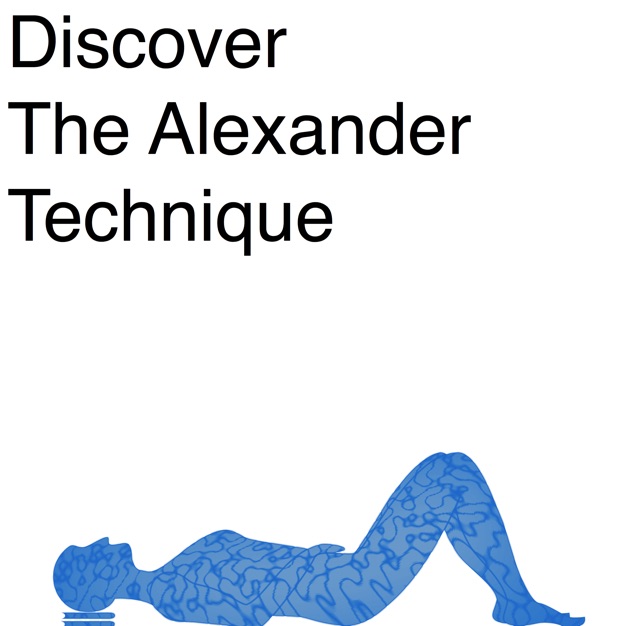 Lesley Edwards Discover the Alexander Technique
Lesley Edwards Discover the Alexander Technique
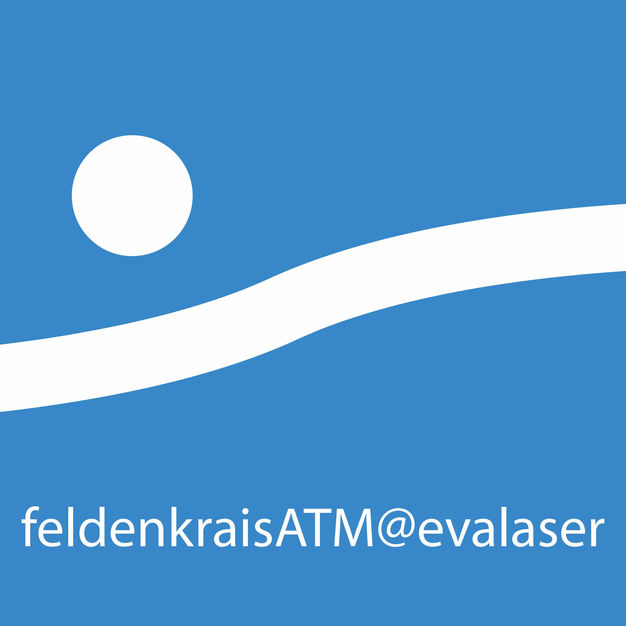 FeldenkraisATM@evalaser
FeldenkraisATM@evalaser
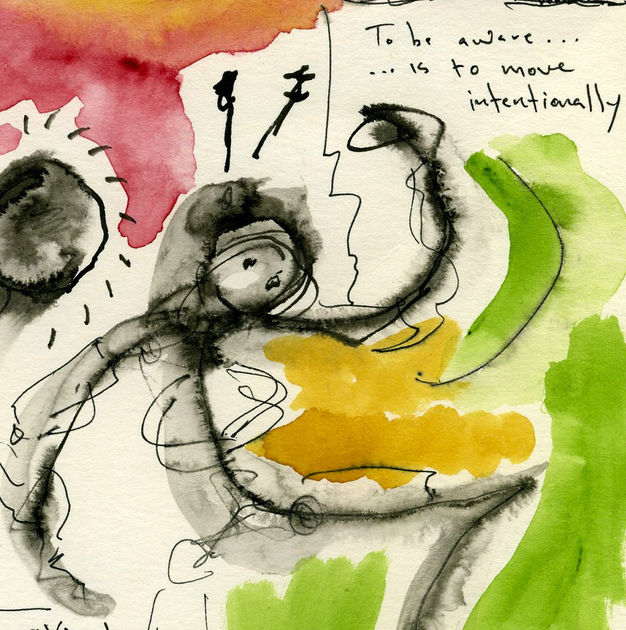 Simply Somatic
Simply Somatic
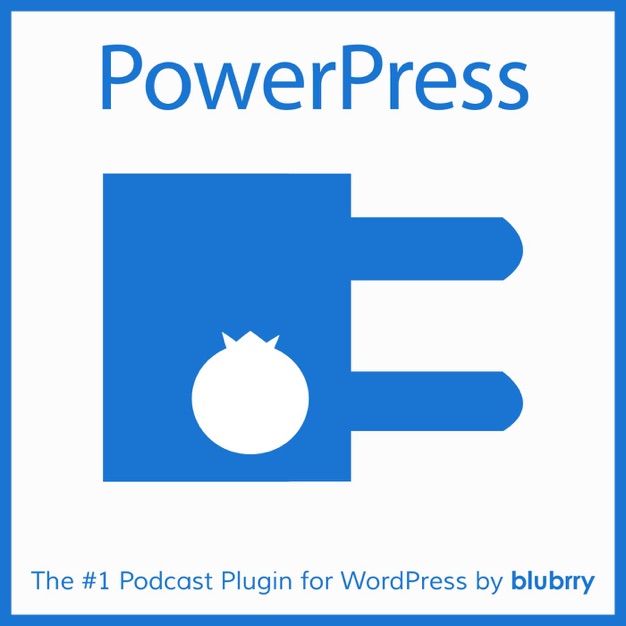 Feel Good
Feel Good
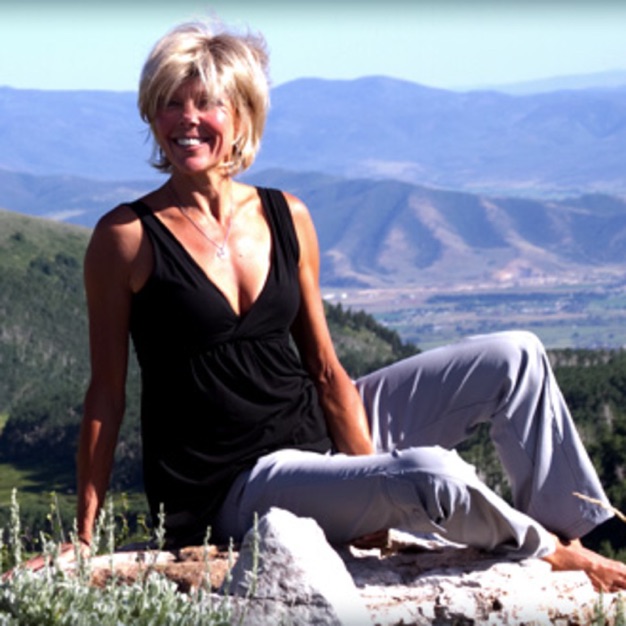 Sharon Starika: Movement Educator
Sharon Starika: Movement Educator
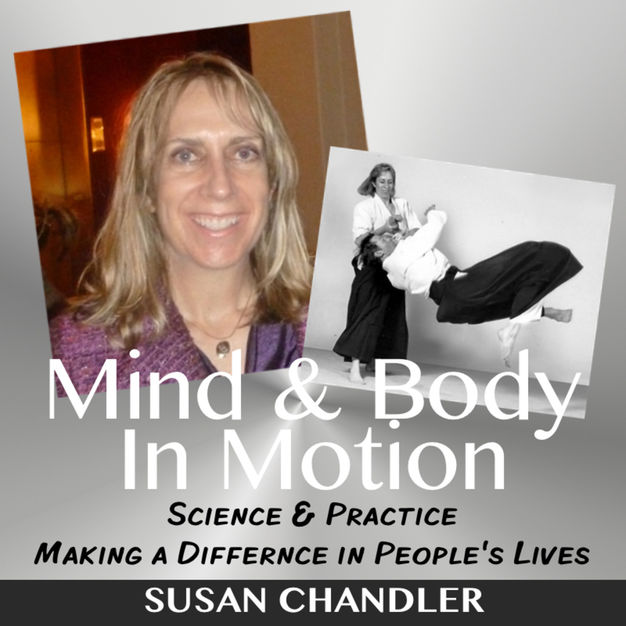 Mind and Body in Motion
Mind and Body in Motion